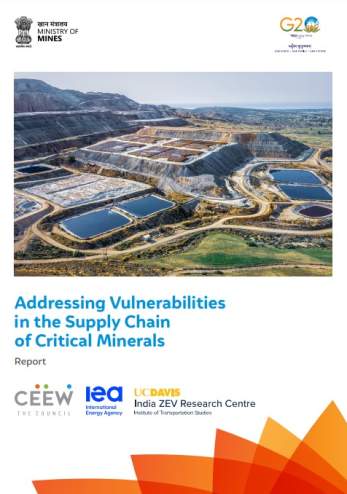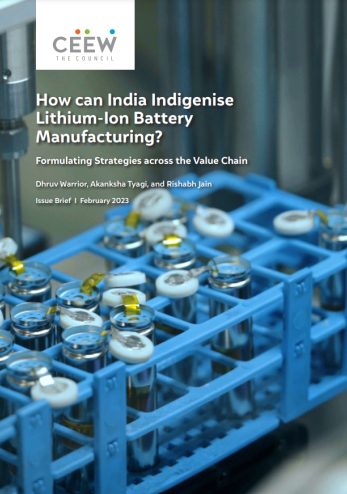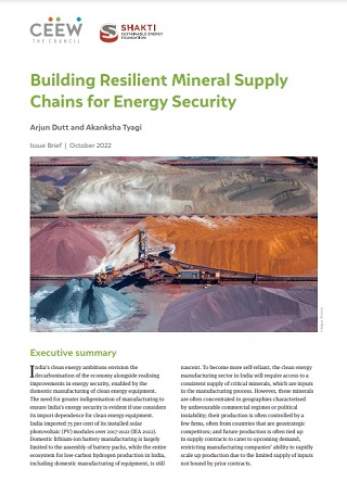Paper
The Post-COVID India
Making Science and Technology Socially and Environmentally Relevant
Prerna Singh Bindra, Chirag Gajjar, Arunabha Ghosh, Manoj Kumar, Crispino Lobo, Digangana Mukherjee, Pradeep Nair, Shannon Olsson, Nitin Pandit, Tina Patrao, Uma Ramakrishnan, Usha Ramanathan, Nimish Shah, Priya Shyamsundar, Prashanth N Srinivas
July 2020 | Technology Futures
Suggested citation: Bindra, Prerna Singh, Chirag Gajjar, Arunabha Ghosh, Manoj Kumar, Crispino Lobo, et al. 2020. "The Post-COVID India: Making science and technology socially and environmentally relevant", Ecology, Economy and Society, 3(2): 5-11.
Overview
This paper, authored by a diverse group of experts, including economists, public health professionals, lawyers, environmental scholars, policymakers, activists, journalists, and CEOs, identifies pressing health and economic challenges related to COVID-19. It examines the role of science and technology in addressing these issues while moving beyond the pandemic. The paper offers recommendations that serve as triggers for deeper dialogue across sectors on knowledge gaps and methods for targeted interdisciplinary research.
Key Highlights
- A decentralised and intersectoral management of interactions among people, livestock, wildlife, forests, and water is essential to prevent and respond to infectious diseases.
- India needs a system-wide overhaul of primary healthcare, especially in disease surveillance and local health governance.
- There are capacity gaps at the district-level in healthcare and educational programmes on nutrition, safety, and hygiene.
- The mass migration of Indians as a result of COVID-19 has put a spotlight on significant issues, including the need for mandatory registration of employees at the lowest administrative levels of businesses and decentralised data-driven public service delivery
- The micro small and medium enterprises (MSMEs) play a critical role in the Indian economy; India’s large informal sector provides over 90 per cent of jobs.
Key Recommendations
- Implement local health governance supported by trained public health professionals instead of specialist doctors.
- Fill capacity and knowledge gaps in primary and secondary healthcare and educational programmes on nutrition, safety, and hygiene with the support of nodal public health research and training centres.
- Provide public health workers with training, equipment and strategies to cope with negative societal responses to their work.
- Empower local governments to deliver quality public services, in particular health and safety services and information.
- Establish central-and state level commissions with public representation to examine current inequities in service access and district level citizen-focused public emergency funds.
- Use existing public works programmes, including MGNREGA and Pradhan Mantri Krishi Sinchayee Yojana to restore ecosystems, build agricultural infrastructure, and conserve water resources.
- Ensure payment of public sector outstanding dues and a time-bound government credit guarantee on incremental loans to induce lending to MSMEs.
- Implement a recovery package that includes low-interest credit to promote climate- and biodiversity-friendly business practices and investments in clean R&D, waste management, energy generation, grid development, and regenerative agriculture.
- Support both rural and urban economies through new scientific and technological innovations in distributed and decentralised energy, infrastructure, agriculture and rural value chains.
- Provide pedagogical and technical training for the production, use, and repair of new technologies and services.
- Focus on drawing women into the labour force.
- Combine modern scientific knowledge, traditional ecological knowledge, and SDG targets to create a roadmap that prevents environmental degradation and strengthens ecosystem protection and restoration.
- Combine research on modern and regenerative agricultural practices with investments in upgradation of rural skills, technology adoption across value chains, and efficient post-harvest activities.
Implement a recovery package that includes low-interest credit to promote climate- and biodiversity-friendly business practices and investments in clean R&D, waste management, energy generation, grid development, and regenerative agriculture.








